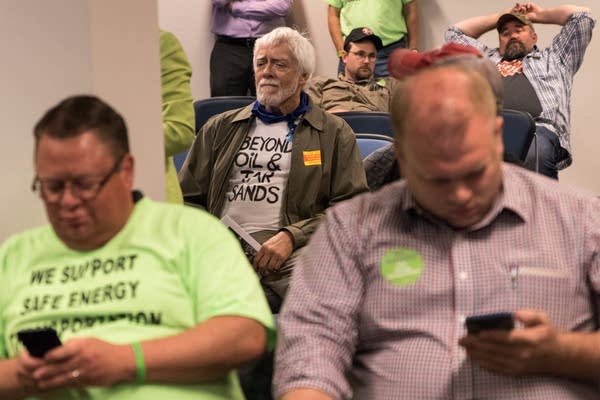Regulators wrestle with Line 3 options ahead of pipeline decision

Line 3 proponents, front, and opponents, center, wait for the hearing to begin in the Public Utilities Commission building last week.
Lacey Young | MPR News
Go Deeper.
Create an account or log in to save stories.
Like this?
Thanks for liking this story! We have added it to a list of your favorite stories.


